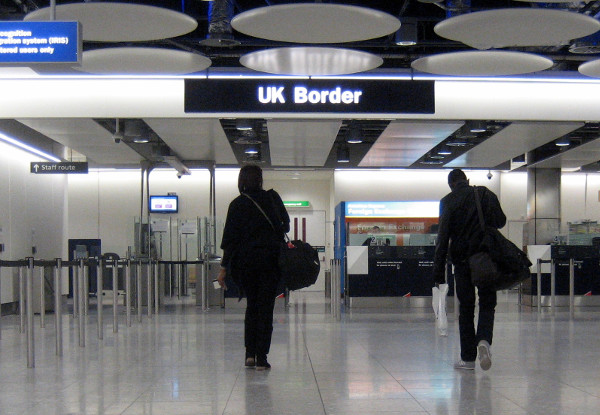People should be free to move, work and live across borders as a basic right.

Seema Syeda is Communications and Campaigns Officer for Another Europe Is Possible, the left-wing anti-Brexit campaign group. Follow Another Europe on Twitter here.
On Wednesday, shadow justice secretary David Lammy stated that Labour in power would have to ‘fix’ Johnson’s Brexit deal, citing “shortages right across the country – shortages of fruit pickers, shortages of builders, shortages of lorry drivers”.
The root cause of these shortages is clear: the end of free movement and the ramping up of the hostile environment. This has created deeply insecure and poorer working conditions for labourers, many of whom are now deterred from entering the UK.
But on Monday, shadow chancellor Rachel Reeves insisted that Labour in power was “not going to bring back free movement”, despite acknowledging that the current crisis was caused by the government’s immigration policy and that “most people couldn’t care less whether the HGV is being driven by a British worker or a foreign worker.”
This failure to call for the restoration of free movement is timid and incoherent.
Free movement as a solution to the current crisis
Economic demands should not dictate migration policy. People should be free to move, work and live across borders as a basic right.
The time is ripe for Labour to make the case for free movement boldly. While the party should not be afraid of leading opinion, polls now show that most people blame Brexit for the current economic crisis.
The situation in 2021 is different from that of 2016, when warnings of an economic fallout caused by Brexit were dismissed by Leavers as scaremongering.
The crisis is now unfolding before our very eyes. Calling for free movement is an open goal.
Haulage
Instead of making it easier and more attractive for HGV drivers to work in the UK by reducing migration barriers and improving pay and conditions, the government launched a dangerous attack on health and safety by increasing the daily limit on driving hours from 9 to 10.
The short-term visa system proposed as a solution to the end of free movement would force lorry drivers to return to their home country after three months and restricts their ability to move from one employer to another, leaving drivers vulnerable to super-exploitation and creating a second-class migrant workforce with fewer rights than UK workers.
Compare this to the situation in the EU, where free movement is a given, working hours are limited and plans are being implemented to give drivers more rest time and longer holidays. While there’s much room for improvement on the continent, it’s no wonder HGV drivers don’t want to come to the UK.
Labour shortages across the board
This situation is mirrored across many sectors of the UK economy, from agriculture to construction, healthcare to hospitality.
The end of free movement and the race to the bottom in pay and conditions are some of the key structural factors causing the shortages. Serious shortfalls in food supply are now predicted in the run-up to Christmas.
In a time of crisis, bold policies and big visions are needed. Labour should demand the immediate restoration and extension of free movement.
The party should work with trade unions to support the establishment of collective sectoral bargaining, pushing for a levelling up of pay and conditions. It should commit to the call for a £15/hour minimum wage. At the moment, such boldness is sorely lacking.
To reach hundreds of thousands of new readers we need to grow our donor base substantially.
That's why in 2024, we are seeking to generate 150 additional regular donors to support Left Foot Forward's work.
We still need another 117 people to donate to hit the target. You can help. Donate today.



